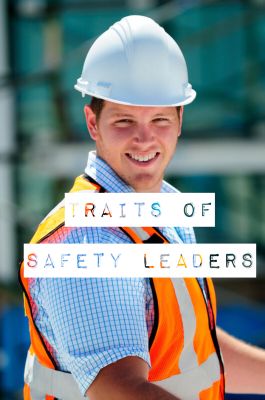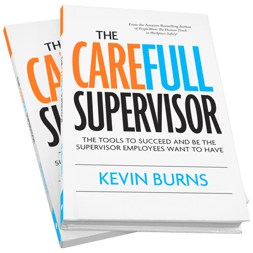If you want to become an effective and respected safety leader, work on these personality traits.
 Back in 2009, when Google first launched their Project Oxygen employee survey, they were looking for a way to help their managers be better. They were also looking for ways that managers and supervisors could help engage employees better.
Back in 2009, when Google first launched their Project Oxygen employee survey, they were looking for a way to help their managers be better. They were also looking for ways that managers and supervisors could help engage employees better.
What Google soon discovered from their employees is not what they had thought. Google's managers were already incredibly technically proficient. But that's not what Google's employees necessarily wanted from their managers. Employees wanted more than technical knowledge. Employees wanted managers with great people skills.
Workplaces whose managers have great people skills have lower employee turnover and higher levels of engagement. But where do you as a supervisor or safety manager acquire good people-skills? It turns out, good people skills have much to do with character and personality traits.
There's an assumption that you already have the basics of safety knowledge under your belt.That needs to be a given. If you don't have the basics of safety already, you must get busy acquiring those skills. And there's an assumption that you genuinely want to make your workplace better.
Here are four of the most critical personality traits to have to be able to make you more effective and respected in your supervisory and management duties in safety:
1Kindness. You cannot have a successful safety culture without courtesy and respect at the very foundation. Kindness, as a personality trait, is at the foundation of courtesy and respect. It's impossible to be genuinely courteous if you are mean-spirited. Kindness is crucial to being a respected safety leader. Treating people with kindness is not something you can fake for long. Eventually, you will tire of putting on a fake smile. You will be found out. Kindness comes from genuinely caring about people. When you can offer kindness to one person on a job site, and make the job site safe for one other person, you are being kind to every other person. Kindness is not weakness. It takes strength to openly care about others in a way that they feel it.
2Integrity. The Merriam-Webster dictionary defines integrity as the quality of being honest and fair; the state of being complete or whole. But in short-form, people know when someone lacks integrity - or when their integrity can be compromised. Supervisors and safety people with integrity refuse to allow excuses and blame to get in the way of carrying-out their safety responsibilities. There are no shortcuts with people of integrity. People of integrity do what they say and say what they do. As the saying goes, they walk the walk. Front-line employees depend on their supervisors and safety people to have integrity. Integrity has a way of transcending a message of "how we do things 'round here." Remember, employees will always be checking you out to see if you believe what you have to say. If you don't believe it, your integrity will be suspect.
3Humility. Again, like kindness, you can't fake humility for long. Acting humble and being humble are very different things. Ultimately, what humility really is, is the quality or state of not thinking that you are better than others. Yes, supervisors and safety people may be in superior positions on the hierarchy scale, but that does not make them superior people. No amount of schooling, titles, certifications or money makes one person more superior. In fact, employees instantly know when someone supposes themself to be superior. It's obvious in the way they communicate and the way that they talk down to employees. Humility is the personality trait that communicates to others that one person is no more important than another. There may be more responsibility with one job over another, but that does not make one person more important than another. Humility builds teamwork.
4Generosity. This is what drives giving, understanding and selflessness. The question could be asked: if you could give of yourself to make another person's circumstances better, why wouldn't you? Generous people don't even stop to think about reasons that they wouldn't. Generous people give. That's what they do. They give credit, give applause, give responsibility and they give examples of how to do it. Generous people do what they can to make someone else's day better. Generous people do it without being asked. Generosity is not about money. Generosity is about time, energy, effort and helping others to succeed. Generous people know the words of Bob Dylan who once said, "just when you think you have nothing left to give, you find out you were wrong."
 If you want to become an effective and respected safety leader, work on each of the four personality traits. You will always be able to find work. You will always find yourself surrounded by others who are of like-mind. Besides, who wouldn't want to work in a job whose supervisor or safety person owned those character and personality traits?
If you want to become an effective and respected safety leader, work on each of the four personality traits. You will always be able to find work. You will always find yourself surrounded by others who are of like-mind. Besides, who wouldn't want to work in a job whose supervisor or safety person owned those character and personality traits?
Kevin Burns gives engaging, entertaining and inspiring speeches to front-line employees at safety meetings. He also works with supervisors and safety managers on-site or in keynote presentations at conferences. Kevin helps organizations integrate caring for and valuing employees through their safety programs. Kevin Burns is a management consultant, safety speaker and author of 9 books.He is based in Calgary, Canada.
(c) Can Stock Photo

